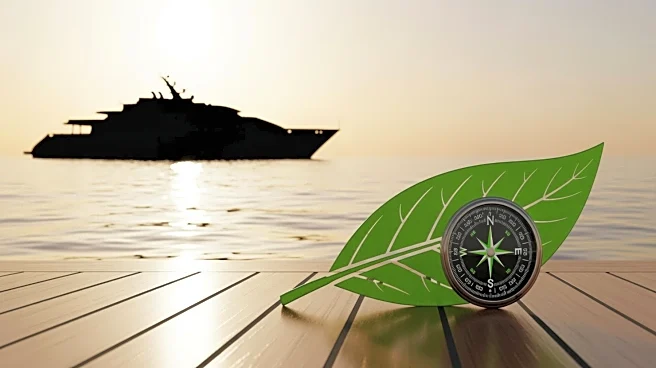What's Happening?
DNV and the World Maritime Merchants Forum have published a guide to assist shipowners in transitioning to net-zero emissions. The guide, supported by industry organizations globally, offers a roadmap for decarbonization, providing actionable steps for aligning
operations with international and regional regulations. It addresses compliance complexities and costs, particularly for small and medium enterprises, and suggests energy-efficiency upgrades, fuel transitions, and fleet renewals to manage expenses and avoid stranded assets.
Why It's Important?
The maritime industry faces increasing pressure to reduce greenhouse gas emissions, driven by regulatory changes and commercial demands. The guide aims to support shipowners in navigating these challenges, promoting sustainable practices and enhancing commercial resilience. By adopting the recommended strategies, shipowners can align with market expectations and regulatory requirements, positioning themselves for long-term success in a rapidly evolving industry.
What's Next?
Shipowners are encouraged to integrate decarbonization into their core business strategies, linking compliance with fleet investment and financing. The guide emphasizes the importance of partnerships across the value chain and investment in digitalization to enhance transparency and regulatory compliance. As the industry continues to evolve, shipowners will need to adapt to new technologies and practices to remain competitive.
Beyond the Headlines
The guide highlights the broader implications of decarbonization for the maritime industry, including ethical considerations and the need for sustainable growth. It underscores the importance of collaboration and innovation in achieving net-zero emissions, potentially influencing future industry standards and practices.















